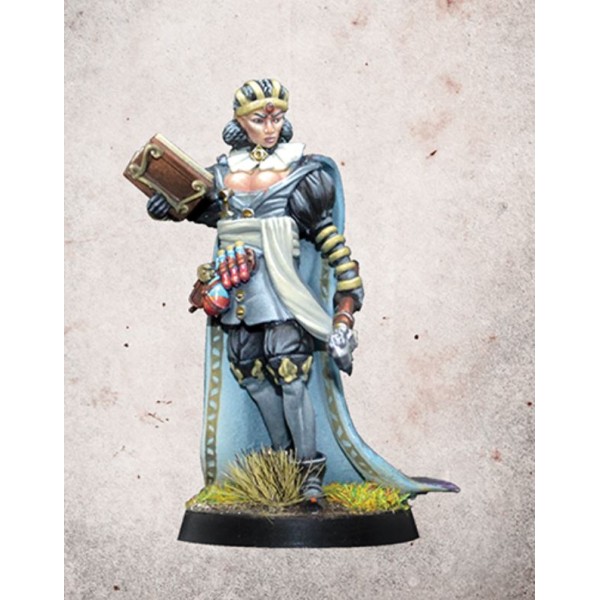Conquest - The Last Argument of Kings - The Hundred Kingdoms - Chapter Mage
- Product Code: PARPBW7222
- Availability: Out Of Stock
-
- Ex Tax:
Chapter Mage
The Hundred Kingdoms
To understand magic, one must first grasp that it is Primordial in aspect. Balance remains anathema to it in almost any form. Human mages have long been considered the weakest practitioners of the Art on Eä, their essence associated with Creation as much as Destruction with each of the elements, traditionally associated with Balance, equally represented. Without a serious imbalance, such as that present within the Dweghom, the power a human can channel without assistance is severely limited. This is not to say that a fully trained Chapter Mage is not capable of turning the course of a battle, merely that he will do so through the opportune application of power at the right time, rather than through the overwhelming application of power on the battlefield the way a Dweghom Pyromancer might.
The Chapter Mages of the Hundred Kingdoms have long been a powerful political tool, their magics more suited to the civilized environment of the court rooms and balls, than the raw elemental puissance demanded on the battlefield. Be one a noble, a bishop or a merchant, keeping a Chapter Mage in one’s retinue is proof of power and influence. Many have wondered why Chapter Mages, long considered amongst the most innovative and creative practitioners of this Art, only rarely become more of a political power within the Hundred Kingdoms as individuals or even organized institutions. The imbalanced soul, however, required by practitioners, often manifests as an excessive or compulsive mind and so the very source of a Chapter Mage’s power becomes the halt of their social and political success. The stories of temperamental and impulsive Pyromancers, distracted and impatient Aeolomancers or plodding, obsessive Geomancers is not a cultural cliché: their esoteric obsessions and proclivities are manifestations of their own imbalanced souls, and isolate them from mundane society, almost invariably turning them into pariahs or recluses.
This necessary imbalance, made manifest in young human Gifted, is what drives them to turn to the Chapters, chartered schools funded by the Imperial Court for the identification, protection and control of the Gifted population of the Empire. These Charters have characteristics as diverse as the individuals who congregate there: The Pool of Stillness caters mainly to Geomancers and Hydromancers, but also to Aeolomancers seeking to still their unquiet souls. The Gates of Fire, considered to be the foremost battle-mage training ground, attracts mostly Pyromancers, but many an Aeolomancer and Hydromancer have found solace in its strict regimes.
Chapter schools, however, do not represent the only place a Gifted student could hope to master the Art. The Churches are also aggressive recruiters of those they claim possess the ‘divine spark’, their aggressive, sometimes predatory, recruiting strategies making them natural enemy of the Chapters and its practitioners. Even beyond these two redoubtable institutions there are other, less conspicuous, places where one might get trained, if they possess the necessary will and aptitudes…


